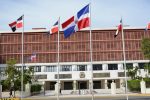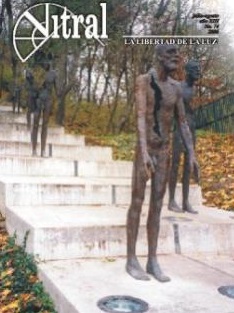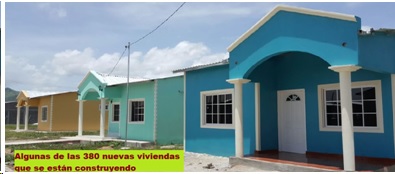|
The federal government coordinated with an array of entities to censor Americans’ speech online, a newly released report from the Select Subcommittee on the Weaponization of the Federal Government shows. In particular, the report shows that the Department of Homeland Security worked with Stanford and the Global Engagement Center, which works across agencies but sits under the State Department to create a streamlined process for identifying and censoring posts. These groups formed the Election Integrity Partnership, which the report shows worked to censor and limit certain posts going into the 2020 presidential election. The report argues the federal government was “heavy-handed” with universities and social media companies and censored conservative viewpoints. |

Washington DC, June 28.– Judicial Watch announced on June 17 it received 110 pages of heavily redacted records from the U.S. Department of Homeland Security (DHS) in a Freedom of Information Act (FOIA) lawsuit that shows state election officials in the days before and after the 2020 election flagging online content deemed “misinformation” and sending it to the Center for Internet Security (CIS), a DHS-funded nonprofit, the Cybersecurity and Infrastructure Security Agency (CISA), the Election Integrity Partnership (EIP), and others.
The records were obtained in response to a November 2022 Freedom of Information Act (FOIA) lawsuit for records of communications between the Cybersecurity and Infrastructure Security Agency (CISA), a division of DHS, and the Election Integrity Partnership (EIP), which was created to suppress online election content for censorship and suppression (Judicial Watch Inc. vs. U.S. Department of Homeland Security (No. 1:22-cv-03560 )). Judicial Watch filed suit in the U.S. District Court for the District of Columbia after DHS failed to respond to an October 2022, FOIA request.
- Hits: 589

 absoluto del Poder Legislativo, por lo que el Ejecutivo no tendrá impedimentos para la aprobación de los empréstitos y las reformas que estime convenientes, incluso favorables a sus intereses partidarios.
absoluto del Poder Legislativo, por lo que el Ejecutivo no tendrá impedimentos para la aprobación de los empréstitos y las reformas que estime convenientes, incluso favorables a sus intereses partidarios.  Señala Dagoberto que «desde aquel llamado “período especial” en los años 90 hasta esta etapa terminal que vivimos hoy, Dios ha estado con nosotros. No tengo la menor duda. Todos aquellos sentimientos, negativos y positivos, se han incrementado hoy. Crear y mantener un proyecto editorial independiente en Cuba durante tres largas y agónicas décadas no es tarea fácil.»
Señala Dagoberto que «desde aquel llamado “período especial” en los años 90 hasta esta etapa terminal que vivimos hoy, Dios ha estado con nosotros. No tengo la menor duda. Todos aquellos sentimientos, negativos y positivos, se han incrementado hoy. Crear y mantener un proyecto editorial independiente en Cuba durante tres largas y agónicas décadas no es tarea fácil.» In 2022, Bolivia lost a record 245,177 hectares of primary forest, the most ecologically significant forests on Earth for carbon storage — which accounted for 12.4% of the total deforestation across the Amazon that year. To put that in perspective, Colombia’s and Peru’s Amazon regions, which combined form a territory of some 127 million hectares, or just over double that of Bolivia, accounted for just 12.2%, according to the Monitoring of the Andean Amazon Project (MAAP), a network dedicated to tracking deforestation in the Amazon.
In 2022, Bolivia lost a record 245,177 hectares of primary forest, the most ecologically significant forests on Earth for carbon storage — which accounted for 12.4% of the total deforestation across the Amazon that year. To put that in perspective, Colombia’s and Peru’s Amazon regions, which combined form a territory of some 127 million hectares, or just over double that of Bolivia, accounted for just 12.2%, according to the Monitoring of the Andean Amazon Project (MAAP), a network dedicated to tracking deforestation in the Amazon.
 Aquí los gobernantes se debaten entre las ideologías y las protestas callejeras cada día más frecuentes…hay mucho descontento. La migración nos lleva los jóvenes mejor preparados porque no ven un futuro prometedor en su propio País. Los hondureños son un pueblo noble, sencillo y trabajador que no merece ser engañado y explotado de esta manera. Recen mucho por nosotros para que Dios envíe su Espíritu de Sabiduría sobre este pueblo y sus gobernantes y podamos emprender un proceso de CONVERSIÓN COLECTIVA que permita un diálogo sincero y productivo, entre pueblo y gobierno, que ayude a tomar las decisiones correctas para el bien, el progreso y la felicidad de todos. La ESPERANZA es lo último que se pierde. Recemos con mucha FE por Cuba, Honduras, Nicaragua y Venezuela. ¡Muchísimas gracias y bendiciones!
Aquí los gobernantes se debaten entre las ideologías y las protestas callejeras cada día más frecuentes…hay mucho descontento. La migración nos lleva los jóvenes mejor preparados porque no ven un futuro prometedor en su propio País. Los hondureños son un pueblo noble, sencillo y trabajador que no merece ser engañado y explotado de esta manera. Recen mucho por nosotros para que Dios envíe su Espíritu de Sabiduría sobre este pueblo y sus gobernantes y podamos emprender un proceso de CONVERSIÓN COLECTIVA que permita un diálogo sincero y productivo, entre pueblo y gobierno, que ayude a tomar las decisiones correctas para el bien, el progreso y la felicidad de todos. La ESPERANZA es lo último que se pierde. Recemos con mucha FE por Cuba, Honduras, Nicaragua y Venezuela. ¡Muchísimas gracias y bendiciones!